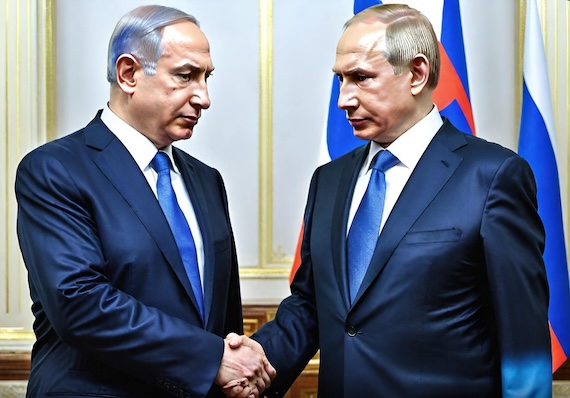By |
( Foreign Policy in Focus ) – International law―the recognized rules of behavior among nations based on customary practices and treaties, among them the United Nations Charter and the Universal Declaration of Human Rights―has been agreed upon by large and small nations alike. To implement this law, the nations of the world have established a UN Security Council (to maintain international peace and security) and a variety of international courts, including the UN’s International Court of Justice (which adjudicates disputes between nations and gives advisory opinions on international legal issues) and the International Criminal Court (which prosecutes individuals for crimes of genocide, crimes against humanity, war crimes, and the crime of aggression).
Yet nations continue to defy international law.
In the ongoing Gaza crisis, the Israeli government has failed to uphold international law by rebuffing the calls of international organizations to end its massive slaughter of Palestinian civilians. The U.S. government has facilitated this behavior by vetoing three UN Security Council resolutions calling for a ceasefire, while the Israeli government has ignored an International Court of Justice ruling that it should head off genocide in Gaza by ensuring sufficient humanitarian assistance to the Palestinian population. The Israeli government has also refused to honor an order by the International Court of Justice to halt its offensive in Rafah and denounced the International Criminal Court’s request for arrest warrants for its top officials.
Russia’s military assault upon Ukraine provides another example of flouting international law. Given the UN Charter’s prohibition of the “use of force against the territorial integrity or political independence of any state,” when Russian military forces seized and annexed Crimea and commenced military operations to gobble up eastern Ukraine in early 2014, the issue came before the UN Security Council, where condemnation of Russia’s action was promptly vetoed by Russia. Similarly, in February 2022, when the Russian government commenced a full-scale invasion of Ukraine, Russia again vetoed Security Council action. That March, the International Court of Justice, by an overwhelming vote, ordered Russia to halt its invasion of Ukraine—but, as usual, to no avail.
Unfortunately, these violations of international law are not unusual for, over many decades, numerous nations have ignored the recognized rules of international conduct.
What is lacking is not international law but, rather, its consistent and universal enforcement. For decades, the five permanent members of the UN Security Council (the United States, Russia, China, Britain, and France) have repeatedly used their veto power in that entity to block UN action to maintain international peace and security. Furthermore, nearly two-thirds of the world’s nations do not accept the compulsory jurisdiction of the International Court of Justice, while more than a third of the world’s nations (including some of the largest, such as Russia, the United States, China, and India) have resisted becoming parties to the International Criminal Court.
Despite such obstacles, these organizations have sometimes played very useful roles in resolving international disputes. The UN Security Council has dispatched numerous peacekeeping missions around the world―including 60 alone in the years since the dissolution of the Soviet Union―that have helped defuse crises in conflict-ridden regions.
For its part, the International Court of Justice (ICJ) paved the way for the Central American Peace Accords during the 1980s through its ruling in Nicaragua v United States, while its ruling in the Nuclear Tests case helped bring an end to nuclear weapons testing in the Pacific. In addition, the ICJ’s ruling in Chad v Libya resolved a territorial dispute between these two nations and ended their military conflict.
Although the International Criminal Court has only been in operation since 2002, it has thus far convicted ten individuals of heinous crimes, issued or requested warrants for the arrest of prominent figures charged with war crimes (including Vladimir Putin, Benjamin Netanyahu, and the leaders of Hamas), and conducted or begun investigations of yet other notorious individuals.
But, of course, as demonstrated by the persistence of wars of aggression and massive violations of human rights, enforcing international law remains a major problem in the contemporary world.

“International Law,” Digital, Dream, Dreamland v 3, 2024
Therefore, if the world is to move beyond national impunity―if it is finally to scrap the long and disgraceful tradition among nations of might makes right―it is necessary to empower the world’s major international organizations to enforce the international law that nations have agreed to respect.
This strengthening of global governance is certainly possible.
Although provisions in the UN Charter make outright abolition of the UN Security Council veto very difficult, other means are available for reducing the veto’s baneful effects. In many cases ―including those of the Ukraine and Gaza conflicts―simply invoking Article 27(3) of the UN Charter would be sufficient, for it states that a party to a dispute before the Security Council shall abstain from voting in connection with that dispute. Furthermore, 124 UN nations have already endorsed a proposal for renunciation of the veto when taking action against genocide, crimes against humanity, and mass atrocities. Moreover, the UN General Assembly has occasionally employed “Uniting for Peace” resolutions to take action when the Security Council has failed to do so.
Improving the effectiveness of the international judicial system has also generated attention in recent years. The LAW Not War campaign, championed by organizations dedicated to improving global governance, advocates strengthening the International Court of Justice, principally by increasing the number of nations accepting the compulsory jurisdiction of the Court. Similarly, the Coalition for the International Criminal Court, representing numerous organizations, calls on all nations to ratify the Court’s founding statute and, thereby, “expand the Court’s reach and reduce the impunity gap.”
National impunity is not inevitable, at least if people and governments of the world are willing to take the necessary actions. Are they? Or will they continue talking of a “rules-based international order” while they avoid enforcing the rules?
This post was originally published on this site be sure to check out more of their content.








